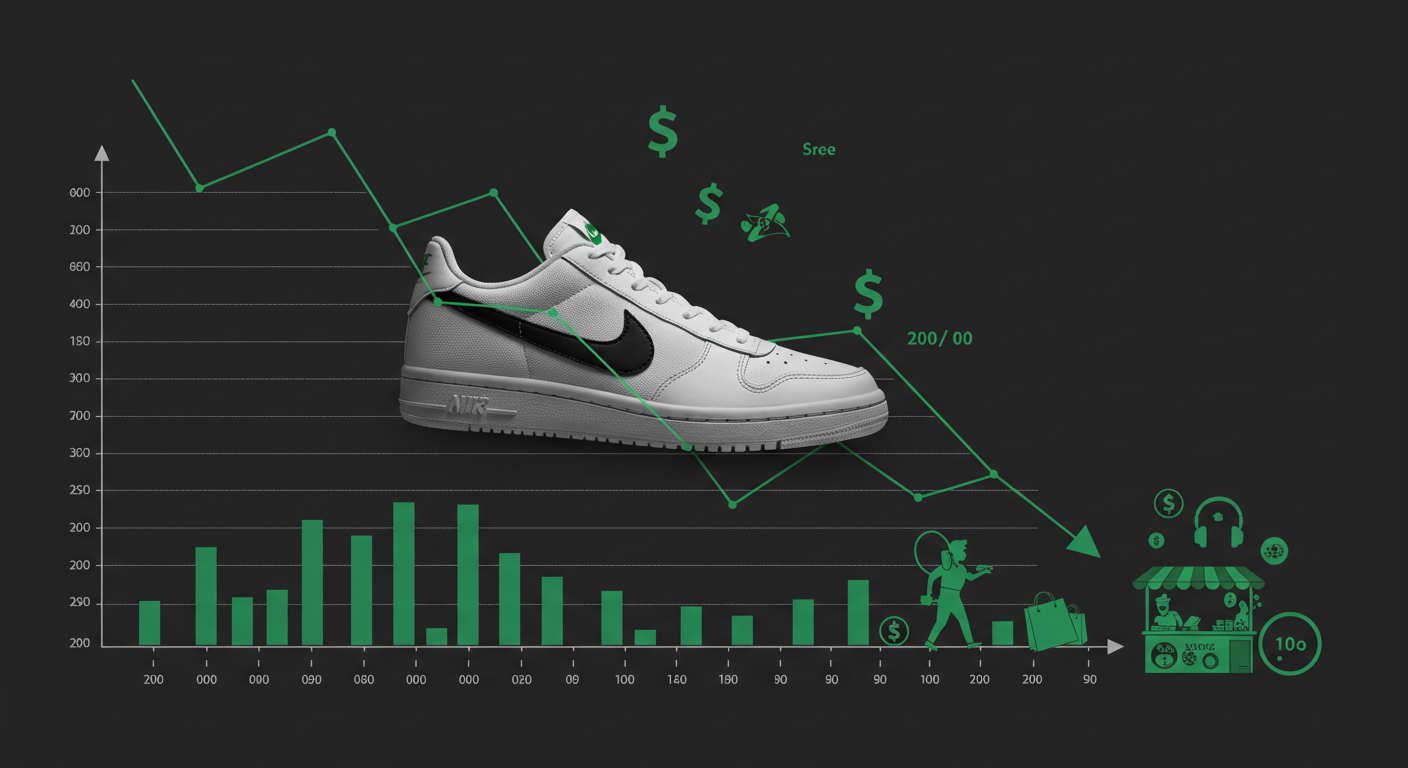By Mofeoluwa Awe
Nike is facing a major slowdown in global sales with a reported 9% drop last quarter and an even steeper 17% decline in China. In North America, which remains its largest market, sales also dropped by 9%. Although its performance wasn’t as bad as analysts feared and the company’s stock rose slightly in after-hours trading, it doesn’t erase the fact that Nike has lost nearly 30% of its value over the last year.
For marketers and retailers in Nigeria, this development presents something worth watching closely. As a country with large youth population heavily influenced by sneaker culture, music, and celebrity-led trends, any shift in Nike’s global brand strategy could have ripple effects in our markets. Nike is currently adjusting its business model by cutting back supply of some of its older, popular sneaker lines like Air Force 1 and Pegasus to create demand and push newer, high-priced models like Air Max. It has also revered its earlier decision to reduce partnerships with third-party retailers, a strategy that had hurt accessibility and weakened brand presence in key regions. In a country like Nigeria where retail visibility and accessibility still depend largely on traditional store presence and resellers, this lesson reinforces the value of maintaining local channels.
Consumers globally are now leaning more towards affordable essentials rather than premium sneakers, and this is especially relevant in Nigeria where inflation and cost of living have made price sensitivity a serious consideration. Brands looking to maintain their positioning must focus on relevance, product accessibility, and pricing that reflects the current realities.
Nike’s new collaboration with Skims, the shapewear brand co-founded by Kim Kardashian, is expected to help the brand reconnect with a different audience segment. While the impact of this in Nigeria remains to be seen, it highlights how global brands are using cultural partnerships to rebuild connection with consumers. For Nigerian marketers, this is a strong reminder of the influence of entertainment, celebrity culture, and cross-industry collaboration in driving brand relevance and emotional connection.
While Nike’s financial dip is a concern globally, it provides marketers in Nigeria an opportunity to reflect on the importance of agility, local relevance, and consistent value delivery. As new competitors rise and consumer habits evolve, the brands that win will be those who stay close to their audience and move with their realities.






Comment
No comments found.